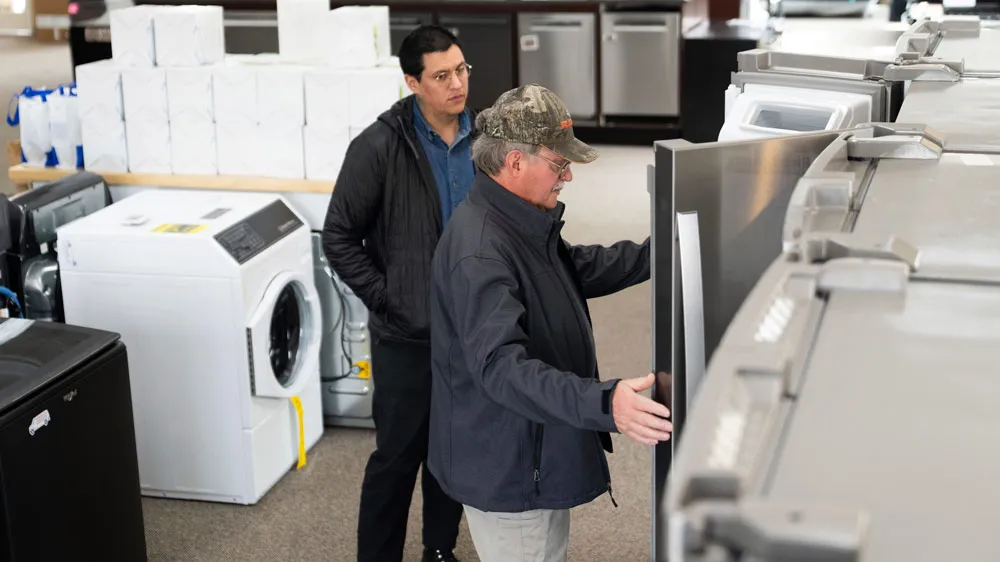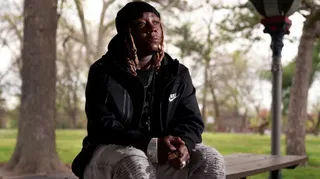February 8, 2016
Indiana Culture War Over Gay Rights Worries Business Leaders
Brian Slodysko READ TIME: 4 MIN.
Downtown Indianapolis was once so desolate that men armed with shotguns hunted pigeons on Sundays among empty buildings and a trash-strewn river canal.
Now the urban center boasts hotels, restaurants, theaters, a 3-mile canal walk and boutique apartments. A modern convention center has been built along with an enclosed NFL football stadium and an NBA basketball arena. Construction cranes hover above the city.
But amid the obvious signs of economic prosperity, business leaders are deeply anxious that decades of retooling Indianapolis' sleepy "Naptown" image could be swept away in a culture war that has divided Indiana's dominant Republican Party.
Chamber of Commerce business Republicans say Indiana must join most of the nation in guaranteeing gay rights to show it is an open-minded place. The state's numerous Christian conservatives just as fiercely believe that such a step would threaten their religious liberty.
The opposing sides fought to a stalemate this week in the Indiana Legislature and Republican lawmakers gave up trying to pass protections for gay, lesbian and bisexual people this year.
"I haven't been as bummed by a bill failing in a long time," said Indiana Chamber of Commerce president and CEO Kevin Brinegar.
Business leaders got a taste of the backlash last year, when Indiana was ridiculed on social media by gay rights supporters after the Legislature passed a religious objections law allowing people to withhold services such as flowers for same-sex weddings. The law was later revised but the damage was done.
"There were news articles from around the world that portrayed Indiana as hostile and unwelcoming," said Bill Oesterle, the former CEO of Indianapolis-based Angie's List, who is a prominent advocate for gay rights. "For those of us who for 30 to 40 years had been working to build up companies, this was devastating."
During the uproar, a researcher for Eli Lilly and Co. was far from the company's Indianapolis headquarters presenting at a conference in France.
"They got to the Q and A part and he got four questions - and they were all about the (religious objections) debate going on Indiana," said Mike O'Connor, director of state government affairs for the drug maker.
A survey by the tourism group Visit Indy suggested that the backlash may have cost at least $60 million in lost revenues after 12 conventions decided to locate elsewhere at least partially because of the religious objections law.
Angie's List, an online marketplace to find contractors, is exactly the kind of digital information company that Indianapolis wants to attract. Oesterle helped found the company in Ohio but brought it back to his home state, locating in Indianapolis roughly two decades ago.
A Republican who once was a strong supporter of Indiana's conservative Christian Gov. Mike Pence, the two had a falling out over social issues, starting with an attempt to insert a gay marriage ban into the state constitution that was supported by the GOP governor.
Religious conservatives say that big business and the chamber of commerce only care about money and not the average person or small businesses.
"We're not buying into all of that," said Pastor Kevin Baird, of the Indiana Pastors' Alliance, which opposes gay rights.
Large swaths of the state are rural and church life looms large, making it an influential political voice.
Like many rust-belt states, Indiana has struggled to transform its economy from a reliance on manufacturing. The state is home to Cummins Inc., a major diesel engine manufacturer, and it still has a higher share of its non-farm jobs in manufacturing than any other state at nearly 17 percent, according to government figures.
Alluding to the annual Indianapolis 500 car race, author and native son Kurt Vonnegut Jr. described the city in 1970 as a place where "it was no easy thing to be an optimist" and the passage of time was marked by "the 500-mile speedway race, and then 364 days of miniature golf."
But in the 1980s, Indianapolis turned to the state's love of sports to kick-start its transformation.
The city began construction on a football stadium in 1982 with no guarantees that an NFL team would relocate - persuading the Colts to relocate from Baltimore in 1984. Indianapolis lured The Pan Am games in 1987, a mini-Olympics for North and South America. The NCAA governing body for college athletics moved its headquarters to Indianapolis from the Kansas City area. And Peyton Manning, one of the most successful quarterbacks of all time, started his first of 14 seasons with the Colts in 1998.
When the 2012 Super Bowl came to town, it was viewed by many as a coronation for the city.
An upcoming test of whether Indiana will suffer from the current gay rights impasse could be a decision on where to locate a key agricultural unit of the massive proposed merger between Dow Chemical and DuPont.
DuPont's headquarters are in Wilmington, Delaware, and the DuPont agricultural unit Pioneer is near Des Moines, Iowa. Indianapolis is headquarters for Dow AgroSciences. Both Iowa and Delaware guarantee gay rights.
While that issue alone is unlikely to be a game changer, Chamber of Commerce president Brinegar said it is "quite likely on the list."
"There is a mythology that Hoosiers are resistant to change and that they are satisfied with mediocrity," said Oesterle. "Do you want to stay the same or do you want to change for the better?"




